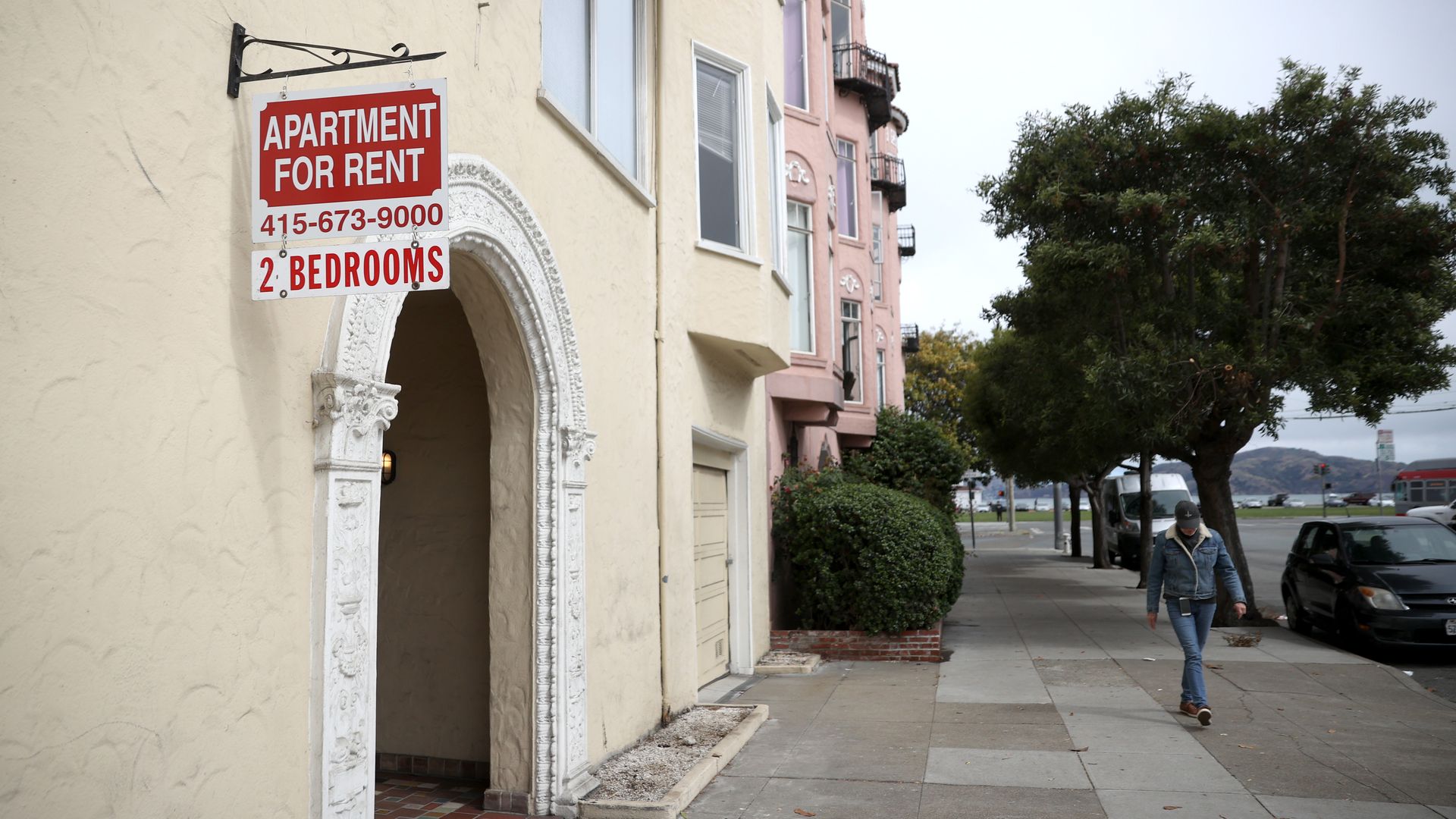San Francisco's vacant housing debate to be settled Tuesday
Add Axios as your preferred source to
see more of our stories on Google.

Apartment for rent in San Francisco. Photo: Justin Sullivan/Getty Images
Prop M, the proposed vacant housing tax, could be among the closer local races in Tuesday's elections.
Context: Roughly 10% of housing units in San Francisco (40,458 out of 406,399) went unoccupied in 2019, a January report uncovered.
- The revelation helped proponents of the tax — which has been implemented in cities like Oakland, Washington, D.C., and Vancouver, Canada — garner enough signatures to get it on tomorrow's ballot.
- Supporters say they hope a new tax would discourage real estate investors from leaving properties vacant and that with more available units, home and rental prices would drop.
Why it matters: San Francisco is one of the most expensive cities in the country to buy or rent a home, and any relief would be welcomed by many.
Of note: Tax dollars brought in by Prop M would go toward "rental subsidies and affordable housing acquisition," the San Francisco Chronicle wrote.
Yes, but: A September report from the city controller's office estimated that only 4,000 units would be subject to the tax due in part to homes needing to be vacant for longer than six months to be eligible, as outlined in the proposition. Single-family homes and two-unit buildings are also exempt.
- Annual revenue generated from Prop M is expected to hit $15.4 million by 2026, down from the controller's previous estimate of $37 million.
- The report estimated that housing prices and rents may drop about 0.1% as a result of the tax.
What they're saying: D5 Supervisor Dean Preston, who supports Prop M, told Axios he thinks the controller's estimates are "extremely conservative," pointing to a report released late last month from the Budget and Legislative Analyst's office that found overall vacancies rose from 40,000 in 2019 to 61,000 in 2021 — a 50% increase. Those vacancies included homes that were on the market for sale or for rent.
- "I think there's no question under any scenario that when you have a vacancy tax in place for years, you will see either thousands or tens of thousands of homes activated, depending on whose predictions turned out to be right," Preston said.
The other side: Steven Buss, director of the political action committee GrowSF, told Axios he and his group think a vacancy tax is a "fundamentally flawed idea."
- Buss argues that some level of vacancy, or "slack in the system," allows people to "find places to live and prevents buildings from falling into a state of disrepair."
- "I do want people holding housing to use it productively, which means making it available to rent or sell," Buss said. "But those incentives already exist because if you're not maximizing the value [and have units that are vacant], you're losing money."
- Buss' proposal to address San Francisco's housing crisis: "Make it easier to build homes … there's no other path."
